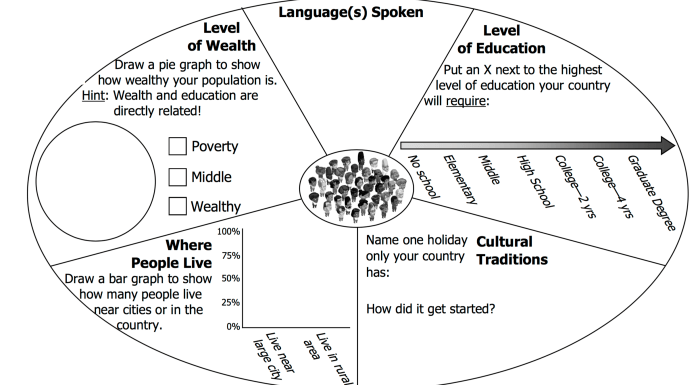Separate and sovereign icivics answer key – The concept of separate and sovereign nations has been a cornerstone of international relations for centuries, shaping the way countries interact and cooperate. This guide explores the I-Civics answer key for “separate and sovereign,” providing a comprehensive understanding of this fundamental principle in civics.
This guide will delve into the historical significance of separate and sovereign nations, examining real-world examples and tracing its evolution over time. We will also compare and contrast this concept with other forms of political organization, analyzing its advantages and disadvantages.
1. Key Term
“Separate and Sovereign”
The concept of “separate and sovereign” is fundamental to the modern understanding of nationhood and international relations. It refers to the idea that each nation is a distinct and independent political entity, with the exclusive right to govern its own affairs and make its own laws.
Meaning of “Separate”, Separate and sovereign icivics answer key
In the context of civics, “separate” means that each nation has its own unique borders, government, and legal system. This separation allows nations to maintain their own cultural and political identities, free from external interference.
Concept of “Sovereignty”
Sovereignty refers to the supreme authority of a nation over its own territory and people. It encompasses the right to make and enforce laws, conduct foreign policy, and manage its own internal affairs without external interference. Sovereignty is essential for a nation to maintain its independence and autonomy.
Historical Significance
The principle of “separate and sovereign” nations emerged during the Enlightenment era, as a reaction to the arbitrary rule of monarchs and empires. The concept gained traction during the American Revolution and the French Revolution, and it has since become a cornerstone of international law and diplomacy.
2. I-Civics Answer Key
Comprehensive Summary
The I-Civics answer key for “separate and sovereign” provides a clear and concise overview of the key concepts related to this principle. It defines the terms “separate” and “sovereign,” explains the historical significance of the concept, and discusses the challenges and benefits of maintaining separate and sovereign states.
Key Concepts Covered
- Definition of “separate” and “sovereign”
- Historical evolution of the concept
- Challenges and benefits of separate and sovereign states
- Impact on global relations
Strengths and Weaknesses
Strengths:
- Clear and concise explanations
- Relevant examples and case studies
- Well-organized and easy to follow
Weaknesses:
- Limited depth on some topics
- May not be suitable for advanced students
3. Real-World Examples: Separate And Sovereign Icivics Answer Key
Separate and Sovereign Nations
- United States of America
- France
- China
- Japan
- Australia
Challenges and Benefits
Challenges
- Maintaining national security
- Resolving international disputes
- Protecting human rights
Benefits
- Self-determination and autonomy
- Cultural preservation and diversity
- Economic development and prosperity
Impact on Global Relations
The principle of separate and sovereign nations has a profound impact on global relations. It promotes cooperation and dialogue, while also creating potential for conflict and tension. The recognition of national sovereignty is essential for maintaining peace and stability in the international community.
4. Historical Perspectives

Evolution of the Concept
The concept of separate and sovereign nations has evolved over centuries. It emerged during the Enlightenment era as a reaction to the absolute rule of monarchs. The American Revolution and the French Revolution further solidified the idea of national sovereignty.
Key Historical Events
- Magna Carta (1215)
- Treaty of Westphalia (1648)
- American Revolution (1775-1783)
- French Revolution (1789-1799)
- Charter of the United Nations (1945)
Influence of Political Ideologies
Different political ideologies have influenced the development of the concept of separate and sovereign nations. Liberalism emphasizes individual rights and limited government, while nationalism promotes national unity and self-determination. Marxism rejects the concept of national sovereignty, advocating for a global revolution.
5. Comparative Analysis
Separate and Sovereign States vs. Other Forms of Political Organization
Separate and sovereign states are distinct from other forms of political organization, such as federations and empires. Federations are composed of smaller political units that share certain powers with a central government, while empires are characterized by a single central authority that exercises control over multiple territories.
Advantages and Disadvantages
Separate and Sovereign States
Advantages:
- Self-determination and autonomy
- Cultural preservation and diversity
- Economic development and prosperity
Disadvantages:
- Challenges in maintaining national security
- Potential for international conflict and tension
Federations
Advantages:
- Shared resources and expertise
- Stronger national defense
- Protection of minority rights
Disadvantages:
- Limited autonomy for individual states
- Complex and bureaucratic decision-making
Empires
Advantages:
- Centralized authority and control
- Efficient administration
- Strong military power
Disadvantages:
- Suppression of local cultures and identities
- Economic exploitation of conquered territories
- Potential for tyranny and oppression
FAQ Compilation
What is the key difference between “separate” and “sovereign”?
In the context of civics, “separate” refers to the distinct existence of nations as independent entities, while “sovereign” implies their supreme authority within their own borders.
How does the I-Civics answer key contribute to understanding the concept of separate and sovereign nations?
The I-Civics answer key provides a structured and comprehensive explanation of the key principles, historical development, and real-world applications of separate and sovereign nations.
What are some real-world examples of separate and sovereign nations?
Examples of separate and sovereign nations include the United States, China, France, and India.